BA forced by the courts to refund £5,000 of non-refundable tickets – unreasonably?
Links on Head for Points may pay us an affiliate commission. A list of partners is here.
I am generally very pro Which? magazine, although in my mind I tend to think of it as peaking in importance in the 1980s and becoming less relevant and less ‘part of the conversation’ as the years moved on. I may be wrong, and I do believe that there is a need for a totally unbiased consumer publication.
In the last few days, Which? has been getting media coverage for the help it gave a reader in securing a £5,000 flight refund from British Airways. The story is here.

Let me simplify the story for you. Remember that this all took place in 2019, pre covid.
- man buys two £2,500 non-refundable, non-changeable business class flights to Hawaii
- man tries to change his flight and is told to take a hike
- man gets Which? to sue BA on his behalf
- Court tells BA to refund his £5,000
British Airways seems to have been badly treated here
In general, the airline world works like this:
- fully flexible business class passengers subsidise leisure passengers
- putting restrictions on cheap tickets is actually beneficial for leisure passengers, because otherwise such tickets couldn’t be so cheap – airlines can’t take the risk of business passengers being able to trade down
When you buy something, certain ‘norms’ are implicitly accepted in the contract. You can’t walk out of Waitrose with your food and pop back later to pay the bill. If you are arrested after walking out of Waitrose with unpaid-for food, you cannot give as your excuse the fact that ‘there are no signs up saying that I can’t pop back and pay later’.
Is it now implicitly understood that the purchase of a flight ticket is non-refundable and non-changeable? I would say that, yes, it is. Customers have been trained by 20 years of low cost carriers to understand that your sale is ‘final’ unless you are told otherwise.
The reason that BA lost the case, however, was that the judge did not believe that the non-refundable, non-changeable rules were highlighted prominently.
I accept that this case has two caveats:
- they were business class tickets, and potentially the public may mistakenly believe that business class tickets have flexibility built-in which economy tickets do not, and
- there were £2,500 tickets, and potentially the public may mistakenly believe that a £2,500 flight ticket would have flexibility built-in – although regular business travellers would know that a fully flexible ticket would cost nearer £5,000 than £2,500
Neither of these are given as reasons for the courts decision, however. It is purely down to the lack of prominence given to the change and refund rules.
This make a mockery of another recent BA case …..
We recently covered the story of a HfP reader who took BA to arbitration to get his seat reservation fees refunded.
He had cancelled his flight due to covid restrictions and expected to be refunded for over £400 of Club World seat reservation fees. BA refused and the arbitrator found in favour of the airline, even though the seats had never been occupied.
This is despite the fact that:
- the small print re non-refundability of seat reservation fees is really hidden away – far more so than the rules on ‘no refunds’ on ticket sales
- I believe that ‘Mr Average’ would expect that his seat reservation fees would be refundable if he cancelled his flight and that if they were not then it should be made very clear
My personal belief is that BA’s actions here may even breach the Unfair Contract Terms Act 1977.
However, the reader lost his £400.
Conclusion
Whilst there may be extenuating circumstances in play (the fact that the tickets were in business class and cost £2,500 each), it was odd in 2020 to have a court decide that a flight ticket should, by default, be refundable and changeable unless significant and obvious warnings are given to the purchaser before they click ‘Buy’.
I am guessing that this was a Small Claims Court case and that the judgement will therefore not be binding on future cases.
You can read the full Which? article here.
How to earn Avios from UK credit cards (December 2021)
As a reminder, there are various ways of earning Avios points from UK credit cards. Many cards also have generous sign-up bonuses!
There are two official British Airways American Express cards with attractive sign-up bonuses:
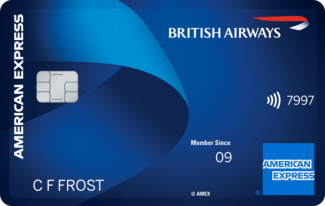
British Airways American Express
5,000 Avios for signing up, no annual fee and an Economy 2-4-1 voucher for spending ….. Read our full review
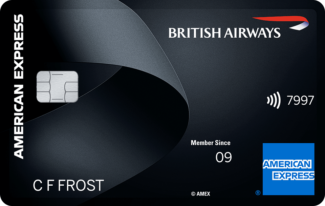
British Airways American Express Premium Plus
25,000 Avios and the UK’s most valuable credit card perk – the 2-4-1 companion voucher Read our full review
You can also get generous sign-up bonuses by applying for American Express cards which earn Membership Rewards points, such as:
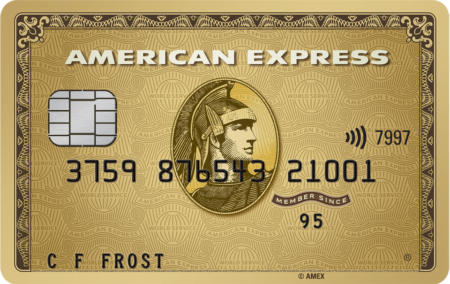
American Express Preferred Rewards Gold
Your best beginner’s card – 20,000 points, FREE for a year & two airport lounge passes Read our full review

The Platinum Card from American Express
30,000 points and an unbeatable set of travel benefits – for a fee Read our full review
Run your own business?
We recommend Capital On Tap for limited companies. You earn 1 Avios per £1 which is impressive for a Visa card, along with a sign-up bonus worth 10,500 Avios:

Capital On Tap Business Rewards Visa
The most generous Avios Visa or Mastercard for a limited company Read our full review
You should also consider the British Airways Accelerating Business credit card. This is open to sole traders as well as limited companies and has a 30,000 Avios sign-up bonus:
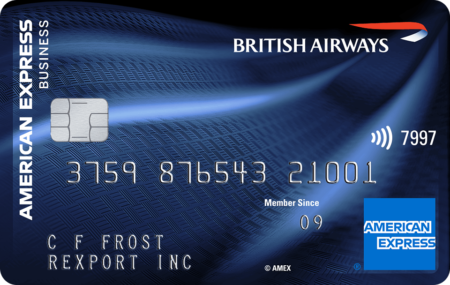
British Airways Accelerating Business American Express
30,000 Avios sign-up bonus – plus annual bonuses of up to 30,000 Avios Read our full review
Click here to read our detailed summary of all UK credit cards which earn Avios. This includes both personal and small business cards.
(Want to earn more Avios? Click here to visit our home page for our latest articles on earning and spending your Avios points and click here to see how to earn more Avios this month from offers and promotions.)


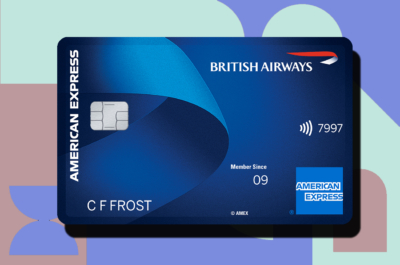




Comments (125)